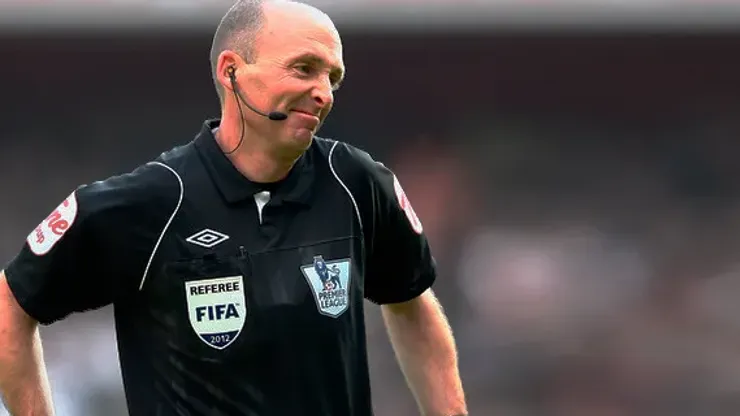It took a few days, but we’ve finally reached a point of resolution, one that most not currently wearing Chelsea shirts saw as closest to correct. Diego Costa, the Premier League’s preeminent bully, got his seemingly well-earned castigation from the English Football Association: a three-match ban that feels like a rolled-up newspaper swatting the nose of a naughty puppy. Gabriel Paulista, whose admittedly stupid “kick-out” — or rather, non-contact boot-raising aimed in Costa’s direction — will be allowed to play this weekend after his red card and subsequent three-match ban was overturned.
TIMELINE: Chelsea 2-0 Arsenal | Costa, Gabriel charged | Arsenal win appeal | Costa banned
That’s not to say there isn’t room for debate. Chelsea fans are perhaps right to assert that Gabriel’s intentions should trump his lack of kicking accuracy. And certainly, the crux of Arsenal’s appeal — external video provided by ESPN Brazil, the only camera that picked up that Gabriel did not make contact with Costa’s leg — should raise concerns about consistency of enforcement as well as what’s permissible evidence in appeals. Regardless, most casual observers see a bottom line: The perpetrator on this day was Diego Costa, whose constant disregard for what constitutes fair play is as frustrating as it was predictable.
So here we are, justice has finally been reached. Or has it? This disciplinary switcheroo came days after the final whistle, long after the result of the game was changed irreversibly in the span of a few minutes. After all, the game was tied when the controversial decision came. It’s possible Chelsea may have been on their way to another win over their London rivals, but we will never know. Surely a missed red card followed by a soft one awarded the other way, a two-man swing, would have affected the match one way or the other.
Whichever way you feel about the decision itself, the fact remains that yet another one of this league’s marquee matchups, two teams picked by many in the preseason to be fighting over the title, was marred by a refereeing decision. We spent the days following one of this league’s biggest games not marveling over individual talent or dissecting the subtle tactical changes that swung momentum to one side or the other; rather, we’re forced to focus on the moment where it all went awry, when the game slipped irredeemably from the officials’ hands.
And yet referee Mike Dean, whose obliviousness to Costa’s inevitable tactics bordered on the unbelievable, will take the field this weekend at Upton Park. He won’t get any more training or any more in-game help. Mike Dean, whose superiors made the rare ruling that beyond a shadow of a doubt he was wrong enough to be overturned, will face no discipline or even a review for essentially blowing one of the highest-profile games of the year.
It’s easy to pick on referees. With the advent of super slo-mo high-definition instant replays, it’s easy for viewers to act as judge and jury for what is a largely difficult and thankless job. But maybe it’s time to start thinking about how to make them better, and if they can’t improve, hold them accountable. Diego Costa’s tactics are no secret; even casual observers could see it coming from a mile away. The fact that Dean didn’t seem to notice, or at least be vigilant of his antics, was incomprehensible. Costa will be off the pitch for his mistake. Why not have the same level of accountability for the referee?
Some argue this adds to the drama; that the so-called “dark arts” employed by players and the human error in judging them can make instantaneous heroes or villains out of players and officials alike. But I doubt many Arsenal fans, or even casual observers hoping for an exciting and fair game, are raving about the drama. They feel cheated, and it’s not hard to see why.
Maybe the Premier League, with its billions of TV rights dollars, can invest more in quality officiating, which time and time again has a huge influence on some of its biggest and most important matches. Maybe the league could pay to hire the best of the best, or bring in more help, either via manpower on the field or technology off it. And if the officials who have induced pregame cringes from fanbases for years can’t keep up, maybe they should see the same level of accountability that they impose on players.
It would be too melodramatic to say there is a refereeing crisis in English soccer, but there’s a palpable and growing frustration about bad officiating in the most important games. Despite the fact that we’ve reached a just decision in the end, much of the damage has been done, and it’s irreversible. It’s not enough to determine Costa’s and Gabriel’s fate after the fact. We need to figure out a way to stop it from happening again.
Referees need support from the Premier League. And if that doesn’t work, they need accountability. Because unless something changes, we will only see more players pushing the rules, cheating to win, and doing the things many claim to despise. And most importantly, the fans will continue to be cheated out of some of the biggest moments in their team’s year.
200+ Channels With Sports & News
- Starting price: $33/mo. for fubo Latino Package
- Watch Premier League, Women’s World Cup, Euro 2024 & Gold Cup
The New Home of MLS
- Price: $14.99/mo. for MLS Season Pass
- Watch every MLS game including playoffs & Leagues Cup
Many Sports & ESPN Originals
- Price: $10.99/mo. (or get ESPN+, Hulu & Disney+ for $14.99/mo.)
- Features Bundesliga, LaLiga, Championship, & FA Cup
2,000+ soccer games per year
- Price: $5.99/mo
- Features Champions League, Serie A, Europa League & Brasileirāo
175 Premier League Games & PL TV
- Starting price: $5.99/mo. for Peacock Premium
- Watch 175 exclusive EPL games per season






